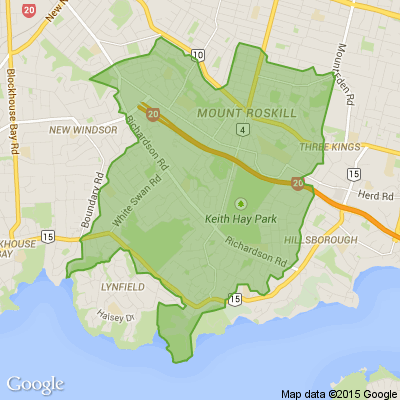Te Pūrākau o Raukura me te Rama o te Whakapātaritari - Day 27
The Story of Raukura and the Lamp of Detachment
In the serene valleys of Aotearoa, a young wahine named Raukura lived among her iwi. She was known for her tireless dedication to her kawa and tikanga—the sacred customs handed down by her tūpuna. She worked on the marae, tended the whenua, and performed the karanga with a voice that resonated like the winds of Tawhirimātea. Yet, in her heart, Raukura felt a longing.
One night, under the light of a full moon, Raukura sought the guidance of her kaumātua, Matakite. He was a tohunga of deep wisdom, known for helping others navigate the wairua realm.
“E Koro,” Raukura said, “I fulfill all my responsibilities to the iwi, but I still feel bound by this world. How can I find peace and freedom in the embrace of Io Matua Kore when my journey ends?”
Matakite smiled knowingly. “Raukura, come to the whare tīpuna at dawn. Bring nothing but your open heart.”
The next morning, Raukura arrived. Inside the whare, a single lamp made of carved pounamu glowed softly. Its flame flickered, yet remained steady.
“This lamp,” said Matakite, “is your mahi, your duties, and your attachments. Your task is to keep it burning, no matter what happens. But remember, the flame is not yours to own.”
Raukura nodded and embraced her new role. Day by day, she cared for the lamp, ensuring it burned brightly while continuing her mahi—weaving cloaks, planting kumara, and guiding her younger whānau in karakia. As time passed, she began to take pride in how brightly the lamp shone, believing it reflected her worth.
One stormy night, a strong gust from the mountains of Tāwhirimātea blew through the whare. The flame flickered and went out. Distressed, Raukura tried everything to relight it, but the damp air and her trembling hands made it impossible.
Exhausted, she sat beside the extinguished lamp, her heart heavy with shame.
At dawn, Matakite entered the whare. Seeing Raukura’s sorrow, he asked gently, “E hine, why do you grieve so?”
“Koro,” Raukura replied, “I have failed. The flame is gone, and I could not keep it alive. I have dishonored my tikanga and my purpose.”
Matakite sat beside her, placing a reassuring hand on her shoulder. “E moko, the lamp was never yours to hold forever. Its flame, like all things in this world, is impermanent. You have misunderstood its purpose.”
Raukura looked at him with tearful eyes. “Then what was the lesson, Koro?”
“The flame represents your attachments,” Matakite explained. “Your mahi and tikanga are sacred, but if you become attached to the outcomes of your actions, you lose sight of the eternal. True peace, te rongo, comes when you serve with aroha, but without clinging to success or fearing failure. Your ultimate purpose is to let go of all attachments and keep your heart fixed on Io Matua Kore, the source of all life.”
Raukura listened deeply, and understanding dawned in her heart. She began to see that her role was not to control the flame but to nurture it while it lasted, and then release it when its time had passed.
From that day forward, Raukura lived differently. She continued her mahi with devotion, but she no longer tied her self-worth to the outcomes. Whether the lamp burned brightly or dimmed, her heart remained steadfast, her thoughts centered on Io Matua Kore.
Years later, when Raukura’s time came, she lay peacefully, surrounded by her whānau. As the final karakia was sung, her last breath carried the whisper of Io Matua Kore’s name. Her spirit soared, free from the bonds of the material world, reunited with the eternal light.
Moral of the Story:
In life, we must fulfill our tikanga and mahi with dedication and aroha, but without attachment to the results. Everything in this world is temporary, like the flickering flame of a lamp. True peace comes when we let go of our attachments and fix our hearts on Io Matua Kore, the eternal source of life. When we embrace detachment, we can find liberation in this life and beyond.
Te Pūrākau o Te Rangatira Ngākau Hūmarie - Day 34
The Tale of the Humble Leader
In a small Māori village near the coast of Aotearoa, the whānau were preparing for Te Rā o te Kirihimete (Christmas Day). It was a time of celebration, sharing, and remembering the values of aroha (love), manaakitanga (hospitality), and kotahitanga (unity). However, this year, the village faced a challenge. Their rangatira, Wiremu, had grown distant and prideful, burdened by his position.
Wiremu often made decisions alone, thinking that his wisdom and authority were enough to guide the iwi. While the villagers respected him, they felt unheard, and the spirit of unity began to fade.
As the Kirihimete celebrations approached, the kaumātua, Hinewai, decided to intervene. She invited Wiremu to the marae one evening, where she shared a story about Tāwhaki, the demigod who ascended to the heavens not through power, but through humility and service.
“Wiremu,” Hinewai said, “even the greatest leaders are at their strongest when they serve their people. Leadership is not about standing above others but walking beside them.”
Wiremu reflected on her words but was unsure how to change.
The Lesson of the Whetū (Stars)
On Christmas Eve, as the village prepared for their festivities, a fierce storm rolled in from the sea. The winds howled, and the rain poured, threatening to ruin the celebration. The central whare kai (dining hall) began to leak, and the decorations the tamariki had made were soaked. The people gathered anxiously, unsure of how to proceed.
Wiremu stood at the edge of the marae, looking at the chaos. In that moment, Hinewai’s words echoed in his mind: “Even the greatest leaders serve their people.”
Without hesitation, Wiremu took off his korowai (cloak of leadership) and joined the villagers. He grabbed buckets to catch the rain, helped rebuild the decorations, and reassured the tamariki that their work would be restored. His humility inspired others, and soon the entire iwi was working together, laughing and singing as they prepared the whare for the celebration.
A Kirihimete Under the Stars
When the storm cleared, the sky was filled with bright whetū (stars). The villagers gathered around a glowing fire outside the whare, sharing kai and stories of gratitude. Wiremu stood among them, no longer as a distant rangatira, but as a friend and servant of his people.
Under the starlit sky, Hinewai stood and addressed the iwi.
“This Kirihimete, we are reminded that true leadership is like the brightest whetū. It does not shine to outdo others but guides them through darkness. Wiremu has shown us the power of humility, and through his service, we have rediscovered our unity.”
Wiremu bowed his head humbly. “Tonight, you have all taught me that a leader is nothing without their people. Let us carry this spirit of kotahitanga and aroha into the new year.”
The villagers cheered, and the spirit of Te Rā o te Kirihimete shone brightly in their hearts.
Moral of the Story:
Leadership is not about authority or pride but about humility and service. Like the whetū that guide travelers, a true leader walks alongside their people, bringing light and unity through service and aroha. At Christmas, we are reminded of the importance of giving, humility, and leading with love.
⚠️ DOGS DIE IN HOT CARS. If you love them, don't leave them. ⚠️
It's a message we share time and time again, and this year, we're calling on you to help us spread that message further.
Did you know that calls to SPCA about dogs left inside hot cars made up a whopping 11% of all welfare calls last summer? This is a completely preventable issue, and one which is causing hundreds of dogs (often loved pets) to suffer.
Here are some quick facts to share with the dog owners in your life:
👉 The temperature inside a car can heat to over 50°C in less than 15 minutes.
👉 Parking in the shade and cracking windows does little to help on a warm day. Dogs rely on panting to keep cool, which they can't do in a hot car.
👉 This puts dogs at a high risk of heatstroke - a serious condition for dogs, with a mortality rate between 39%-50%.
👉 It is an offence under the Animal Welfare Act to leave a dog in a hot vehicle if they are showing signs of heat stress. You can be fined, and prosecuted.
SPCA has created downloadable resources to help you spread the message even further. Posters, a flyer, and a social media tile can be downloaded from our website here: www.spca.nz...
We encourage you to use these - and ask your local businesses to display the posters if they can. Flyers can be kept in your car and handed out as needed.
This is a community problem, and one we cannot solve alone. Help us to prevent more tragedies this summer by sharing this post.
On behalf of the animals - thank you ❤️








 Loading…
Loading…




